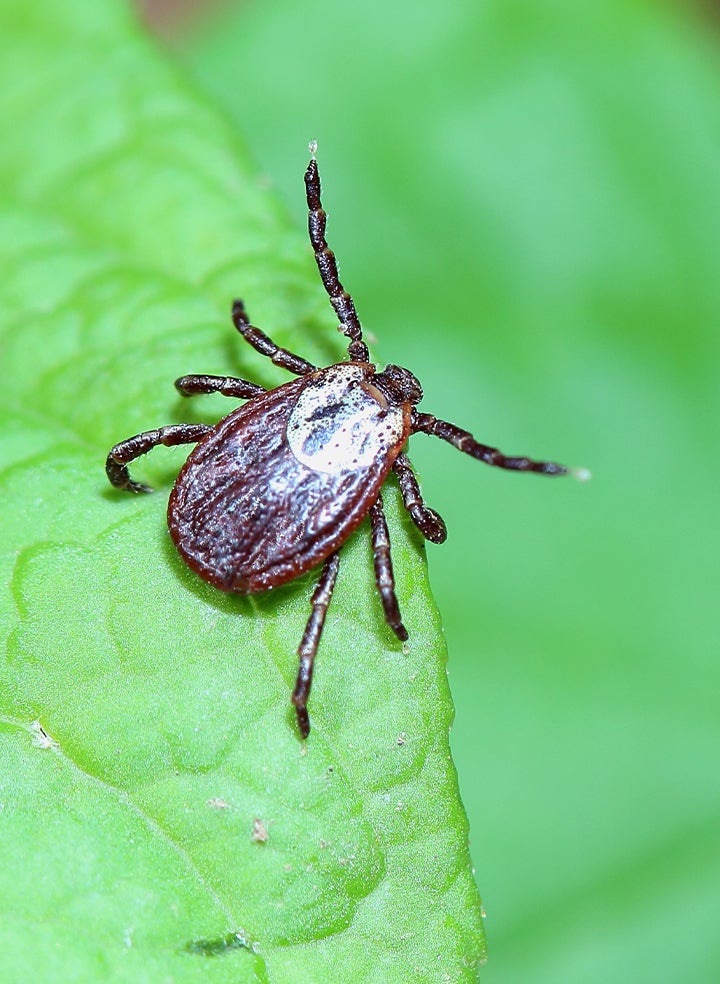Tick Bites and Lyme Disease: What You Need to Know
Tick bites are common, but can be dangerous. Let's walk through what to do if you discover you've been bitten by a tick.

If you are bitten by a tick, it will most likely be painless, and you may not even know you’ve been bitten. Most tick bites result in only mild symptoms such as swelling, redness, a sore on the skin, or a small allergic rash. However, because some ticks carry bacteria that cause illnesses such as Lyme disease, measures should be taken to prevent and treat tick bites quickly and safely.
Early symptoms of Lyme disease include a rash around the bite, and flu-like symptoms. Often, the rash forms a distinctive bull’s-eye shape. Many people, however, do not notice any early symptoms.
As Lyme disease progresses, symptoms can include Lyme arthritis, fever, headache, stiffness of the neck, irregularities of the heart, temporary facial muscle paralysis, pain and numbness or weakness in the arms or legs, and difficulties with concentration or memory. The sooner Lyme disease is treated (usually with antibiotics), the better the chances for a full recovery.
To reduce the risk of contracting potentially serious tick-borne infections such as Lyme disease, special care should be taken to avoid tick bites and to treat them if they occur.
Ticks in the Midwest
According to the CDC, the most common ticks in the Midwest are:
American Dog Tick, also known as the Wood Tick
Lone Star Tick
Black-Legged Tick, also known as the Deer Tick.
Tick Bite Prevention
Physicians recommend the following precautions to reduce the risk of being bitten by a tick:
Avoid walking through tall grass and weeds. This is where ticks are most commonly found.
Cover up outdoors with light-colored clothing. This should include a long-sleeved shirt and a head covering. Wear sturdy footwear and tuck your pants into your socks to keep ticks from getting under your clothes.
Use insect repellant containing 10 percent to 30 percent DEET.
Check yourself, your family members and your pets for ticks every two to three hours when outdoors.
Eliminate potential tick habitat around your home by keeping grass and weeds trimmed.
What to Do if You Get a Tick Bite
Urgent Care for Tick Removal
An attached tick typically takes 36 hours or more to transfer Lyme disease. Other tick-borne infections can happen in just hours or sometimes minutes. Therefore, it is important to remove ticks as soon as possible.
WellNow Urgent Care offers tick removal, tick bite or rash assessment, and treatment (antibiotic) if necessary. Walk-in or reserve your time online to have a tick removed.
At Home Tick Removal
Take precautions to help prevent transmission of bacteria during removal by using the following method. Using tweezers, carefully grip the tick close to your skin. Gently pull the tick straight out, avoiding twisting or jerking motions. If tweezers aren’t readily available, use a tissue or cloth to protect your fingers and remove the tick by hand.
Do not use petroleum jelly, nail polish, or hot matches to remove ticks. These methods are not recommended by medical professionals, as they can increase the risk of infection.
Secure the tick. Place the tick in a container or zip lock bag and keep it in your freezer. To help determine if you could have been infected, bring the tick into Physicians Immediate Care or your primary care doctor to examine the tick or send it for testing.
Wash the bite and your hands. Use soap and a disinfectant.
When to Seek Emergency Care
Seek immediate medical attention if you experience a severe headache, breathing difficulties, paralysis, or heart palpitations.
When to Contact Your Doctor
Make an appointment with your doctor or visit an urgent care clinic if:
You can’t fully remove the tick from your skin
You develop flu-like symptoms
The bite appears infected (discharge, tenderness or redness are common indicators)
The rash increases in size or develops a bull’s-eye pattern
You suspect that you were bitten by a blacklegged tick (also known as a deer tick)
If you have questions or concerns about ticks, or you believe you’ve been bitten, meet with a provider at your convenience by making an appointment or finding an urgent care clinic location near you. Most locations are open 7 days a week to help with your tick removal.
